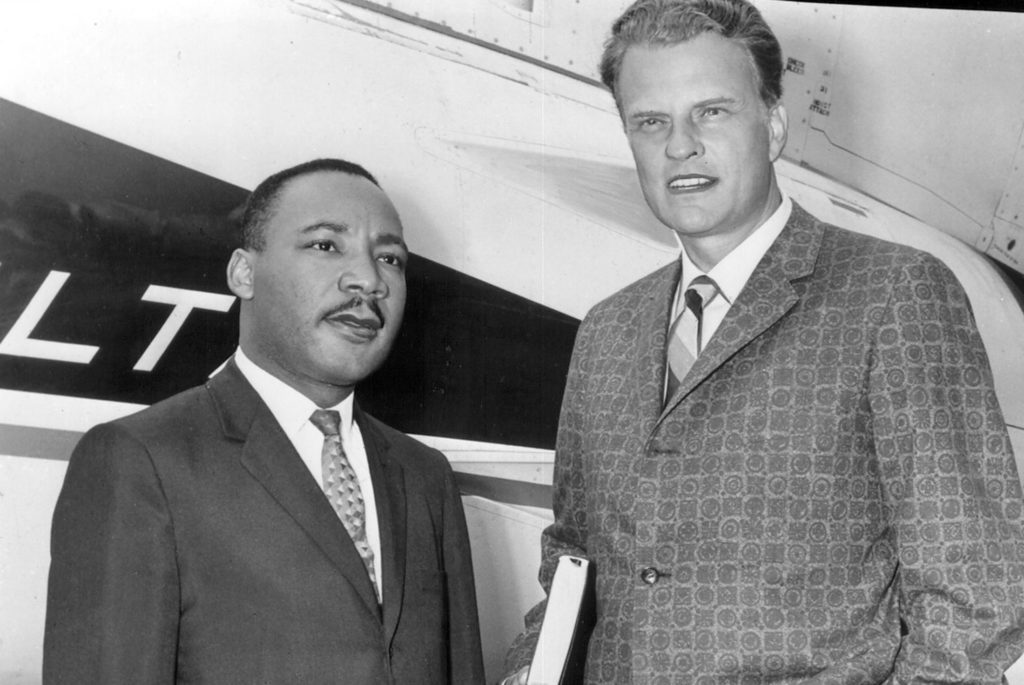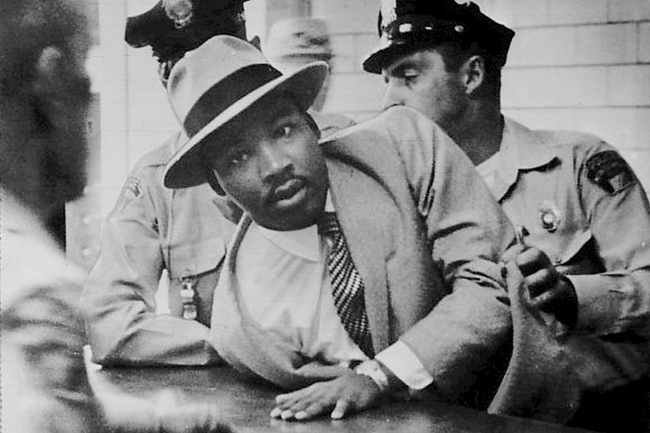
Numbers and dates can never tell the whole story, but they can give us a glimpse into the impact Dr. Martin Luther King, Jr. made.
April 4, 2018 marked the 50th anniversary of the assassination of Dr. Martin Luther King Jr., Baptist minister and civil rights icon.
His life, ministry, and death dramatically changed the trajectory of the United States.
Numbers and dates can never tell the whole story, but they can give us a glimpse into the impact King made.
1920s
January 15, 1929 — Martin Luther King Jr. was born with the legal name “Michael King,” the same name as his father.
The Rev. Martin Luther King Sr. changed both of their names in 1934, as he said “Michael” was a mistake by the doctor overseeing the younger’s birth.
1940s
September 20, 1944 — King enrolled in Morehouse College at the age of 15 after his junior year in high school.
February 25, 1948 — King was ordained into the ministry at Ebenezer Baptist Church in Atlanta.
June 8, 1948 — He graduated from Morehouse and enrolled in Crozer Theological Seminary to pursue “an inner urge to serve humanity” as a minister.
1950s
May 8, 1951 — At Crozer, he was valedictorian in 1951 and was elected student body president.
September 13, 1951 — He began graduate studies at Boston University’s School of Theology.
June 18, 1953 — King married Coretta Scott on the lawn of her parents’ home in Alabama. They had four children: Yolanda, Martin Luther King III, Dexter Scott, and Bernice.

May 14, 1954 — At the age of 25, King was called as pastor of Dexter Avenue Baptist Church in Montgomery, Alabama. He began his duties on September 1.
June 5, 1955 — King received his Ph.D. in systematic theology from Boston University.
December 1, 1955 — Rosa Parks refused to give up her seat on a Montgomery city bus to a white person. King helped to organize and lead a bus boycott, which concluded with a district court ruling that ended racial segregation on all Montgomery public buses.
January 30, 1956 — Due to King’s role in the bus boycott, his house was bombed while he was away speaking. His wife, daughter, and a church member were inside but were unharmed.
January 10, 1957 — After successfully ending the bus boycott, King and several other ministers and leaders founded the Southern Christian Leadership Conference to support nonviolent opposition to segregation.
February 18, 1957 — Time magazine placed King on its cover.
May 17, 1957 — He delivered his first national address, “Give Us the Ballot,” at the Prayer Pilgrimage for Freedom at the Lincoln Memorial in Washington, D.C.
July 18, 1957 — Billy Graham had King pray at his long-running New York City crusade in Madison Square Garden and the two began a complicated relationship.

Graham introduced King by saying, “A great social revolution is going on in the United States today. Dr. King is one of its leaders, and we appreciate his taking time out of his busy schedule to come and share this service with us tonight.”
November 1958 — King inscribed a copy of his book Stride Toward Freedom to theologian Reinhold Niebuhr, praising him as a theologian of “great prophetic vision.”
1960s
October 1960 — On October 19, King was jailed for picketing a department store. He was released three days later and then jailed again on October 22 for driving with an Alabama license while being a resident of Georgia.
He was sentenced to four months of hard labor. Coretta was so worried about his safety, she reached out to friends and eventually heard from presidential candidate John F. Kennedy.

April 19, 1961 — King spoke at the Southern Baptist Theological Seminary’s chapel and a seminary ethics class. You can listen to his address here.
April 16, 1963 — After being arrested for violating a court injunction against demonstrations, King wrote Letter From a Birmingham Jail.
August 28, 1963 — The March on Washington for Jobs and Freedom featured King’s “I Have a Dream” speech at the Lincoln Memorial in front of more than 200,000 demonstrators.
September 18, 1963 — King delivered the eulogy for three girls killed by a bombing at the 16th Street Baptist Church in Birmingham.
January 3, 1964 — Time named him “Man of the Year” for 1963, the first African-American recipient of the honor.
December 10, 1964 — He won the Nobel Peace Prize for being, as the committee called him, “the first person in the Western world to have shown us that a struggle can be waged without violence.”
March 17-25, 1965 — King led a peaceful march for civil rights from Selma to Montgomery after voting rights marchers were beaten by Selma police.
December 4, 1967 — King discussed plans for a Poor People’s Campaign, a civil disobedience protest in Washington, to highlight economic injustice.
April 3, 1968 — At the Mason Temple, headquarters of the Church of God in Christ, King delivered what would be his final speech: “I’ve Been to the Mountaintop.”
April 4, 1968 — King was assassinated by James Earl Ray at 6:01 p.m. on the second-floor balcony of the Lorraine Motel in Memphis.
His last words were said to have been to musician Ben Branch: “Ben, make sure you play ‘Take My Hand, Precious Lord’ in the meeting tonight. Play it real pretty.”
April 7, 1968 — President Lyndon B. Johnson declared the day a national day of mourning for King.
April 9, 1968 — Two funeral services were held in Atlanta—one for family and close friends and a later one for the public. “Take My Hand, Precious Lord” was sung at the funeral.











